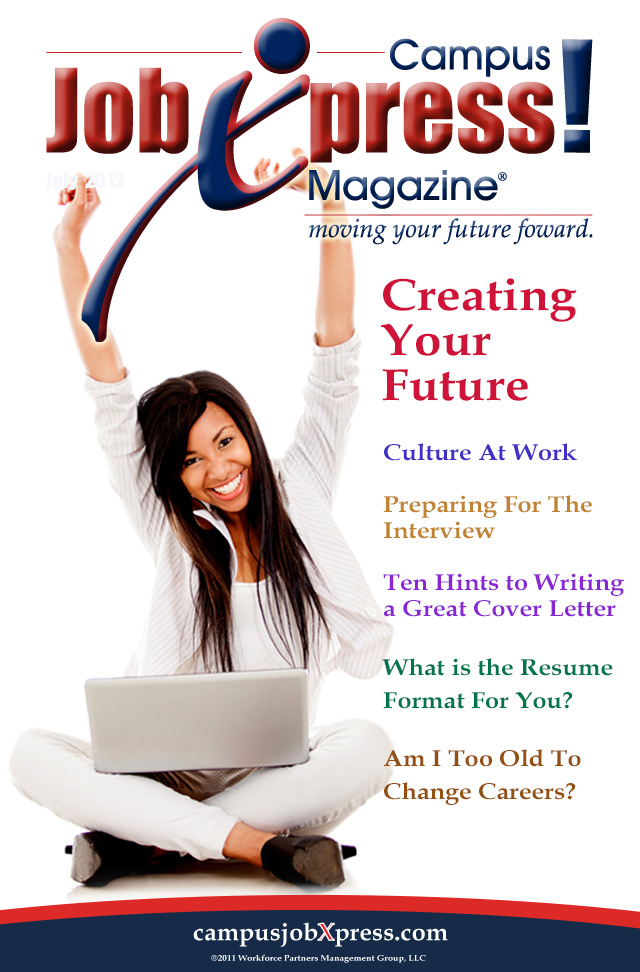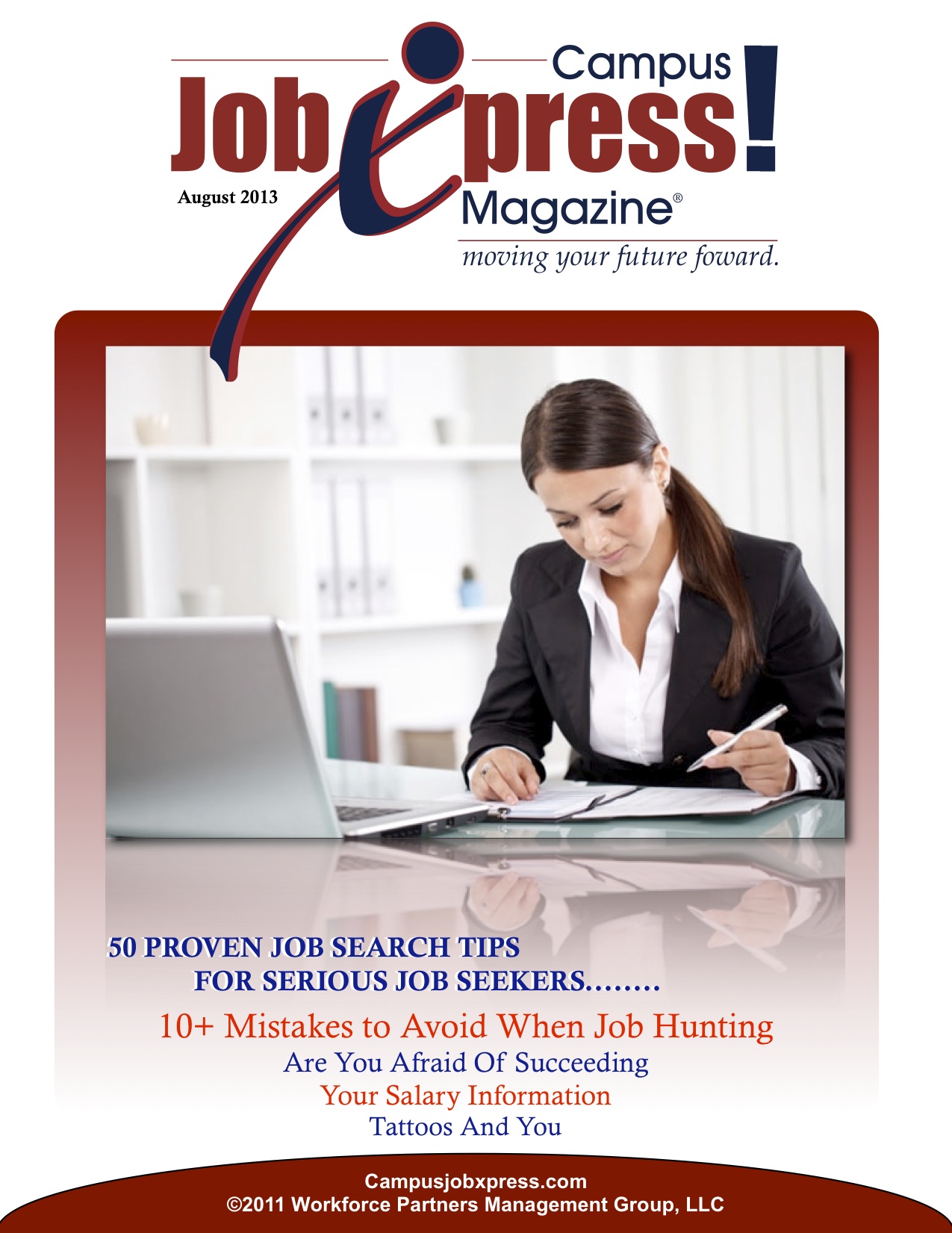by cjxpadmin | Sep 16, 2013 | Job Club Heart of Texas
There are times when you are looking for a job that you have to make choices. Sometimes the job maybe a little fruther thenyou want to drive. Or maybe the hours are no just right. These are all things that can factor in your success at your job. What you have to decide is if the road blocks are really road blocks. The job might be a little further away then you would normally drive, but the pay is better then anything closer. The hours might not be the best, but they have benefits. Take a piece of paper and make two columns. Write down 5 must haves and 5 road blocks. Start with your road blocks. Can these things be fixed? Can you hire a sitter? Can you take a bus instead of driving? Is there anyway to surmount the problem. If so then take it off your road block list. Once you’re done with that, go to your must haves. Decide if the must have is a need or a desire. If it’s just a desire then take it off the list. If it’s a must have that you would ignore for the right job, then it’s not a must have. Once you’re finished with the list look at the job you’re considering then make your choice.
by cjxpadmin | Sep 2, 2013 | Job Club Heart of Texas
Discussion 59: Are You Interview-Ready?
There are many times when we lose out on job opportunities simply because we are not ready. We’ve been dreaming of this interview or this job for a long time, but when it finally happens, we fall short because our business was not in order. Here is a checklist of things that you should be able to do in case you have an on-the-spot interview. Are you ready?
1. Can you explain why you are qualified for the job you are interviewing for in under 30 seconds? If you can’t explain why you should get the job, the employer isn’t going to be offer you the job.
2. Do you have a resume? With the advent of smart phones and e-mail, there is no reason why you should not be able to shoot out an e-mail or print a resume within half-a-day of your interview. You may not even be able to bring it with you, but you should be able to at least say, “Yes, I have a resume; let me get it for you.”
3. You should have at least one interview outfit. You don’t have to have a Brooks Brothers suit or a Chanel dress, but you should have at least one outfit that you can get into that makes you look work-ready. If you don’t have one, places like Goodwill, Caritas or consignment shops are awesome for finding things to interview in, cheaply and in some cases, free.
4. Can you answer questions about your qualifications? It’s one thing to be able to tell someone what you did, but it is a completely different thing to answer questions about how you did them. Practice some interview questions with your family or friends. The best offense is a good defense. If you have answers ready for the questions, then, you’ll sail through that interview with flying colors.
- Do you know the location of your interview? There is nothing like doing a little research about the positions that interest you. You need to know where they are, what they do, and what the company is all about before you even step in the door. There is so much information out there for you to research. When they ask you why you want to work there, you should be able to tell them exactly why.
Good Luck!
by cjxpadmin | Aug 26, 2013 | Job Club Heart of Texas
Here is a list of some very powerful ways of approaching the coming job search.
By Yolanda Salazar 10 Steps To A Job Search Workbook
1. Be curious.
Be curious about what you may create for yourself. Look for those jobs that you may not have ever done, but you feel that maybe, if given a chance, you could learn to do. It might be something that you really enjoy doing and never thought about getting paid for doing it.
2. Be confident. Believe in yourself! Be confident in what you have to offer your future employer.
3. Be gutsy. Develop a “It doesn’t hurt to ask” attitude and approach your job search with guts.
4. Be prepared. It is very important to express exactly what you are trying to say and do, both orally and in writing.
5. Be and feel challenged. Let challenge become your guide and discover how to come up with more and more leads.
6. Be connected. This is so very important. Connect to as many people as you can. Connect to agencies and resources wherever they may be available. This can help tremendously.
7. Be frugal with your time. Your job search is an urgent matter. There is no time to waste, so use your time wisely.
8. Be fearless. There is nothing you can’t do. Do not be afraid to talk to people. Ask them questions about who they know, about what they do in their jobs and especially about any job leads they might be able to give you.
9. Be friendly. You can get more with honey than you can with vinegar! Be friendly in all your transactions with everyone you meet and connect with along your route to a job.
10. Be easygoing. Relax, take it easy and enjoy the adventure of finding a job.
11. Be creative. Use your own imagination to create your own winning formula.
12. Be active. Try to keep yourself active, regular and consistent in your everyday efforts.
13. Be diligent. Make sure you follow-up every tip, lead or possibility that comes your way. Don’t let a miracle slip through your fingers.
14. Be proactive. Make things happen for you. Keep initiating the action.
15. Be positive. Go for what you want, what you really, really want and play big.
16. Be promotable. Create great stuff to promote yourself. Show all that you can and how well you do it.
17. Be sellable. Sell yourself like a champ! Be enrolling and likable. This is where you brag on yourself. Don’t hold anything back.
18. Be successful.
by cjxpadmin | Aug 12, 2013 | Job Club Heart of Texas
8 Ways to Age Proof Your Resume:
Preparing a resume that emphasizes your value is a good first step to preparing for your job search. Here are eight ways to age-proof your resume:
1. Don’t provide your complete work history: This is the number one mistake job seekers make. If it’s before 1990, employers probably don’t care. Hiring managers are most interested in what you did recently, so concentrate on your recent career. If you feel compelled to delve into earlier experiences, create a section called “Early Career” and provide just the highlights and no dates.
2. Watch your language: Avoid age-revealing statements such as “35 years of experience” or age-defining clichés such as “seasoned professional.”
3. Stick to a “combination” resume style, leading with a strong “Career Summary” section: You may have been advised to mask your years of experience with a functional resume format. But employers do not like to see functional resumes because they are often used by candidates who are trying to hide something. You don’t want employers reading your resume and searching for a possible problem. Unless your work history is extremely spotty or you are completely changing careers, stick to a chronological format.
4. Show that you’re current with technology and industry trends: Are you proficient with Wang or an expert at BASIC programming? While these programs were once cutting-edge, they have been replaced with new technology. Show that you’ve kept up with the times by removing antiquated equipment, programs, and tools, and highlight your knowledge of modern technology.
5. Consider dropping dates of education: This is a tough call, because hiring managers who want to know a person’s age will go right to the “Education” section and do the math. If your education occurred in the 1970s or earlier, it might be in your best interest to eliminate graduation dates.
6. Keep your school names updated: If you graduated from a school that has since changed its name, include the new name. If you are concerned about discrepancies in case an employer asks to see a transcript, write the former name of the school in parentheses.
7. Show that you’ve been continually learning or taking on new roles: The key is to demonstrate that your skills are fresh and in demand. It is important that you show that you are flexible and willing to adapt to organizational changes.
8. Quantify and expand on your achievements: As a professional with a long work history, this is your chance to accentuate the positive. You have what younger workers may lack — years of practical experience. Provide examples of how your performance contributed to your employers’ goals, mission, and bottom-line results.
Click Here to READ the FULL ARTICLE
Was this article useful? If so, subscribe to our newsletter to read more!
Source:Resume Power.com
_________________________


